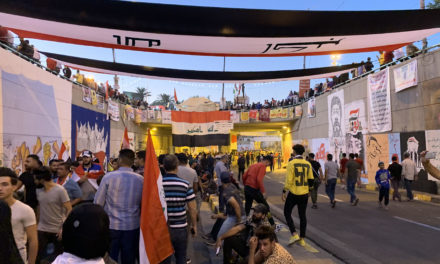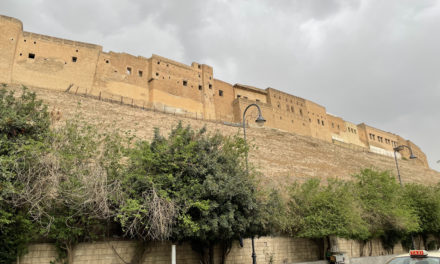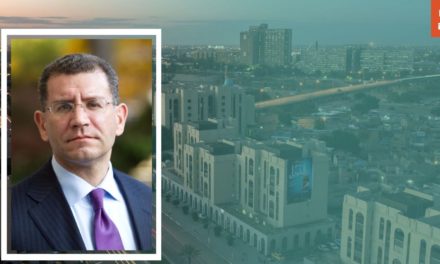As the world watched in disbelief, jihadist fighters overran Iraq’s second largest city advancing towards the capital. The Islamic State’s ruthless nature and unquenchable thirst for blood instilled fear in first responders. Local residents rejoiced as many of them viewed the Iraqi army as an occupational force rather than a legitimate security entity. ISIS militants were seen as liberators from Baghdad’s military presence as residents stoned vehicles belonging to the fleeing Iraqi army. Following the Islamic State’s capture of the city, pressure on then Prime Minister Nuri al-Maliki to step down escalated quickly. The term “Sunni marginalisation” was coined as ISIS was seen as a direct result of Maliki’s political marginalisation of Sunnis. He was accused of undermining moderate political leaders, which opened the door for ISIS to emerge.
But does this all sound too familiar? Remember in 2006 when Al-Qaeda also had a strong foothold in Sunni provinces? During the Awakening Movement, Sunni tribal leaders were bribed to end the frequent attacks carried out against US and Iraqi military personnel. A monthly salary was dedicated to them in an attempt to have them aid in the fight against Al-Qaeda and its affiliates. Since this is not the first time Sunni extremists take shelter in Sunni provinces, one might ask why ISIS or other extremists enjoy a strong foothold in Sunni-inhabited areas.
Sunnis have heavily depended on insurgency to demonstrate their discontent with a Shiite majority government. They deployed it as a negotiation card in which they can pressure their rivals to submit to their demands. This is partly drawn from a growing notion that they will be given an inferior status within future governments. However the fact remains, Iraq’s Sunnis need to take a stance and determine their role in a post-Saddam Iraq. This undoubtedly is a key step in moving the country forward. To date their stance has been one rife with negative actions, which have been detrimental to the political process. It has however, served Sunni interests as it forced the Shiites to accept them as an authoritative opposition rather than just a supplicant in the political process. Sunnis have always disrupted the political process one way or another. This persistent disruption has been one of the reasons the previous governments have failed in making any evident progress.
Before Maliki came to power, Sunnis boycotted the 2005 parliamentary election for no other reason but to disrupt the political process. Although snubbing the elections left them significantly underrepresented and weakened, the boycott was seen as a tactical triumph. When this blunder proved costly, Sunnis began to make amends as early as the October constitutional referendum in which a sizeable amount of Sunnis took part. Similarly in the 2010 elections, Sunni bloc National Dialogue Front (NDF) withdrew from the elections after protesting Saleh al-Mutlaq’s disqualification for having ties with the Ba’ath Party. In that election, it further proved how boycotting the 2005 elections was a costly mistake as NDF scrambled quickly to come back in the frame and take part in the elections. Whether the rationale behind boycotting the elections was US occupation or Iranian influence in Iraq, boycotting the elections had negative consequences that limited representation of the Sunni community.
When Sunni blocs did participate in the government, they still identified themselves as an opposition and functioned as a restraint on government actions bringing the political transformation close to collapse. They took hard-line positions against their political partners and were vocal in criticizing the government even though they were part of it. For example, Sunni blocs rejected any counterinsurgency action implemented by the government. Further, they consistently opposed voting on laws in parliamentary sessions because they believed it would be a political gain for the government. Some of these laws that were either delayed or opposed include voting on oil contracts, an infrastructure law, ratifying the budget, eradicating parliamentarian pensions, etc.
The majority Shia have only half the cabinet positions in the new Iraqi Government as well as the previous ones. How can the similar representation as the previous administration end the marginalisation rhetoric? Well, Sunni satisfaction lies in seeing faces that have strongly opposed the previous government come to power in Abadi’s newly formed government, i.e., current deputy prime minister Saleh Al-Mutlaq, vice president Ayad Allawi and Osama Al-Nujaifi. However, do these candidates actually represent the Sunni community?
Not only has the Iraqi Government not politically marginalised Sunnis, but even culturally the government does not marginalise Sunnis since the Sunni Endowment, mosques, and schools are all generously federally funded. In an open letter earlier this year, Sunni Sheikh Khalid Al-Mulla believes his coreligionists are digging themselves into a hole: Sunnis boycott the political process, resort to terrorism, and further alienate themselves from their compatriots (all ethnic groups have been affected by Sunni extremism). Sunnis need to realize that terrorism is a temporary force and empowers them for a short time; terrorism cannot be contained and Sunnis, too, will die in the process and their towns will be demolished. As stated by Dr. Abbas Kadhim, “Perception trumps reality in Iraq,” and citizens blame Baghdad rather than local government for poor services. Sunnis need to accept Iraq’s math (Sunnis still enjoy more than fair share of representation in government), fully embrace the existing democratic process, save their own citizens’ lives by not housing foreign terrorists, preserve and improve their cities (insurgency has never improved a Sunni city), and be a part of what can be a prosperous nation with strong provincial governments.









